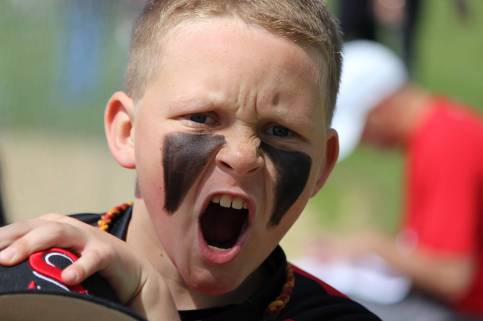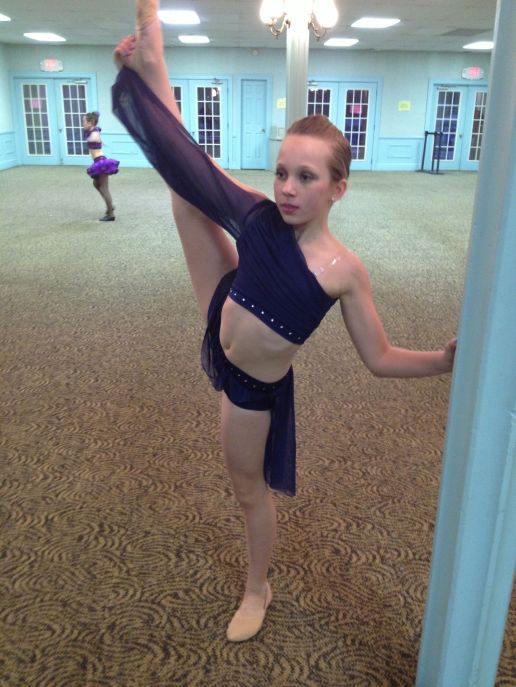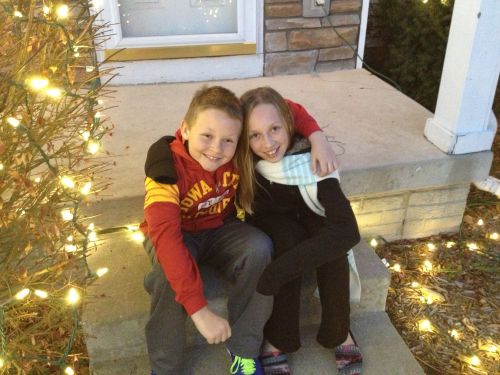This article first appeared in the Winter 2015 issue of Renew magazine.
For me, 2014, the Year of the Horse, has been a game changer. It was the year I realized that in many ways I have become my father. It was also the year I came to realize my greatest opportunity in life might be to break the cycle of anger, addiction, and alcoholism that has plagued my family as far back as I can trace. And once again, this year, I learned that surrender is my greatest ally and benefactor.
On the 31st of October, at the tender age of 54, I celebrated 16 years of sobriety. A few months before that, I joked with my son on his 9th birthday that he was now 9 years sober since hadn’t yet taken a drink. (At least, I don’t think he has. I took my first drink at 11, and kids do things earlier and earlier these days, so who knows.) A few days after my 16th anniversary, my daughter celebrated her 12th birthday. On that day, I remembered that 12 years earlier I had come to understand, in a matter of moments, what it means to love unconditionally.
The greatest act of spirituality I can think of is the act of forgiveness. This was the year I sat quietly in the bleachers at a baseball game moments after my then 8-year old-son hit his first ever, over the fence, out of the park, home run—a walk off grand slam no less. I sat quietly because it was at that very moment—the moment other parents were jostling me, patting my back, and yelling, “Did you see it? Did you see it go over the fence? It’s a Grand Slam!”—it was at that very moment I realized I had become my father.
Less than an hour before hitting his first home run, while warming up, my son had seemed rather lethargic. I had chided him for failing to hustle, failing to show enthusiasm, failing to listen to his coaches … failing, failing, failing … to do what I thought he should be doing, as my father had chided me for failing to do what he thought I should be doing many years ago. And just as I had done to my father on numerous occasions—and with great pleasure—my son rose up and quieted my rant with one swing of his bat.
At that moment, the moment my son launched the ball over the fence with the bases loaded, I realized I had become my father and I forgave him.
Like his father before him and my father before me, my son exhibits a great deal of natural talent on the baseball field (a blessing and a curse). Already, though he’s only 8, I’ve heard numerous parents and coaches—some of them former professional baseball players–talk about his “potential,” a word I grew to hate between the ages of 8 and 18. Unlike my father, who would never know the joy and clarity of sobriety before alcoholism took his liver and eventually his life, I have the opportunity in sobriety to make my son’s experience of that word much different and hopefully more fruitful than my own. If nothing else, recovery has taught me to think of those who depend on me before I think of myself. In my son’s case, recovery forces me to focus not only on his successes and failures but also on how well he and I handle them together … until he is ready to handle them on his own.
After yet another day of baseball on yet another Saturday afternoon, the father of one of my son’s teammates sent me a series of photos of my 8-year-old in action. I eventually posted this one to Facebook and labeled it simply, The Warrior. I’m sure most who look at it chuckle over the artful overabundance of eye black that same father-photographer applied to my son’s cheeks before the game. It would become his signature look for the remainder of the season. Privately I labeled that picture the Warrior because I know that as an athlete and as a man, he’ll face many of the same trials and tribulations that I did and still do. Thankfully, to date, he’s never seen his “old man” take a drink or use any substance to handle any of those trials and tribulations. My greatest prayer is that in so witnessing, he, too, will turn to faith in a power greater than himself as a solution to life’s challenges before he ever thinks to turn to anything else.
Later that same day, after the baseball games were over, my son and I drove 45 miles north to Ames, Iowa to watch my daughter dance in one of her many dance competitions. Sitting in CY Stephens Auditorium on the Iowa State University campus waiting for her to take the stage and perform her solo for the first time in front of an audience, I realized how peacefully and purely I enjoyed watching her dance. She was out of my reach, way beyond “my” element, and certainly out of my control. There was nothing I could do for her even if I knew what it was she was supposed to do. I could not run back stage and tell her to show some enthusiasm or listen to her coach. I couldn’t even go backstage. And civility prohibited me from yelling out instructions or commands once she did take the stage. More important, I wouldn’t have known what to “yell out” even if civility didn’t prohibit me. All I’ve ever known to do where my daughter’s performances are concerned is to wish her luck and courage beforehand, enjoy the show, and applaud her performance once completed. Here was forced surrender and consequently a much more serene and peaceful experience of the moment.
That evening in Ames I experienced yet another moment of clarity. I realized the incentive my father provided me as a young man came not from the stern discipline and drill-sergeant-like directives he was famous for, but rather from his mere presence. Whether stern and disciplinary or supportive and loving (and he was all of the above at different times), his presence, the fact that he cared enough to be present, kept me fighting to improve as much as his absence robbed me of desire.
Sitting in that auditorium choking back tears as my daughter performed, I realized if I knew as little about baseball, golf, math, and literature as I do about modern dance, I might actually surrender a little more and enjoy my children a helluva lot more. I might learn to be less the ogre, and more the nurturer they need when struggling to learn how to live life on life’s terms.
My father never had a daughter to learn from, and sitting there that evening I knew without a doubt I had a lot more to learn from the Princess on stage that might one day benefit the Warrior by my side.



